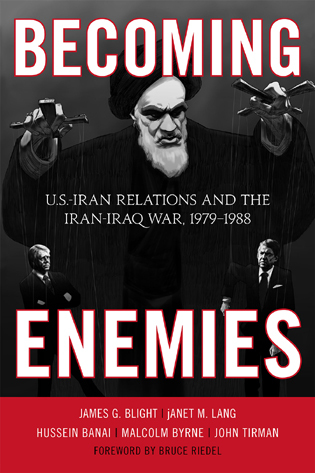Proxy forces seek outside support for many reasons, writes Dan Byman. Resources are the most obvious one: Outsiders will provide, money, weapons, and training, among other forms of support. This piece originally appeared on Lawfare, and you can read the earlier piece examining the same issues from the state’s perspective here.
Just as states exploit proxies for their own ends, so too do proxies exploit states—but the cost for them is often heavy.
Proxy forces, like the U.S.-backed Kurdish “People’s Protection Unit” (YPG) in Syria, the Iranian-backed Houthis in Yemen, or Russian-backed forces in Ukraine, seek outside support for many reasons. Resources are the most obvious one: Outsiders will provide money, weapons, and training, among other forms of support. Some also provide a haven, giving the leadership of a group a place to plan and organize with at least some impunity. At times, the military support can be massive. The United States conducted over 10,000 airstrikes in Syria, helping the YPG drive the Islamic State from much of eastern Syria—a feat the group could not have considered on its own.
In a few cases, outside support may also help a group legitimate itself. Foreign recognition, even from a small state, can burnish a leader’s reputation. This is especially so when the group’s members admire or feel a sense of affinity for the sponsor: so Hezbollah gets bonus points as many Lebanese Shiite identify with or at least have a warm feeling for Iran, the dominant Shiite power. The situation is reversed for Palestine Islamic Jihad, a small group Tehran supports to attack Israel, because the many among the overwhelmingly Sunni Muslim population of Palestine loathe Iran for its support of the Syrian regime and its sectarian war against that country’s Sunnis.
From a group or leader’s perspective, the outside support also offers independence from rivals. Small factions without a broader movement are able to pay higher salaries for members, arm themselves with more powerful weapons, and otherwise distinguish themselves and avoid being swallowed by larger and more powerful groups. As such, the outside support may help the group at the expense of the movement as a whole, allowing divisions to grow and fester.
These groups, in turn, may gradually lose touch with their constituents because they do not rely on them to raise money or supply recruits who aren’t in it for the salary. Over time, they may lose their nationalist credibility. Groups like al-Saiqa, a Palestinian group strongly backed by Syria, faded out in part because they could not replenish their ranks after Israeli strikes decimated their cadre.
As this suggests, it is often the most-desperate and least-popular groups that seek outside support—a proxy-war version of adverse selection. So it is not surprising that Palestine Islamic Jihad is willing to take the opprobrium associated with ties to Iran because it is broke and lacks the networks to acquire significant weapons on its own. Hamas, in contrast, also works with Iran, but as a far stronger group it was able to cut ties for several years when Iran’s support for the Syrian regime as war spread in 2012 made it widely hated among Sunnis. In general, Hamas has proven it is not an Iranian puppet despite taking Iran’s money and especially weapons.
Groups, moreover, often have reason to regret taking on foreign support. At the very least, many sponsors impose limits, fearing at least some retaliation or damage to their reputations. Iran and Pakistan, both of which rely heavily on proxies, have limited the arms they provide. Iran, for example, has not transferred chemical weapons to Hezbollah despite their exceptionally close relationship. Tehran also recognizes that if one of its known proxies attacks the U.S. homeland, America might retaliate by going after Iran. Not surprisingly, Iranian proxies have focused on U.S. forces in war zones like Iraq or, over 20 years ago, forces deployed in Saudi Arabia, in order to limit the chances of unwanted escalation.
As various Kurdish groups can attest, foreign supporters are fickle. The United States turned its back on Iraqi Kurds, whom it had backed in the early 1970s against Saddam Hussein’s regime, after the Shah of Iran cut a deal with Saddam in 1975. In 1996, Saddam’s forces made an incursion into Kurdish areas notionally under U.S. protection, while Washington stood by. Washington is now reducing support for the YPG in Syria, and may end it altogether, due to pressure from Turkey. As the Kurdish experience suggests, states are usually more concerned with the policies and goodwill of other governments and will sacrifice proxies as necessary to advance their ends.
States are particularly likely to abandon proxies (or back rival ones) when their goals differ. So Pakistan provided support for the Jammu and Kashmir Liberation Front in the 1980s when it rebelled against India. However, the JKLF wanted an independent Kashmir, not union with Pakistan, so Islamabad supported its rivals that favored Pakistan’s agenda, and eventually the JKLF collapsed, caught between Indian security forces and pro-Pakistani militants. Support is often an alliance of convenience, not a close relationship.
So just as states should think twice about supporting proxies, so too should proxies think twice about relying on foreign powers. At best they can hope for resources and assistance, but they should never count on it lasting over time.








Commentary
Why be a pawn to a state? Proxy wars from a proxy’s perspective
May 22, 2018